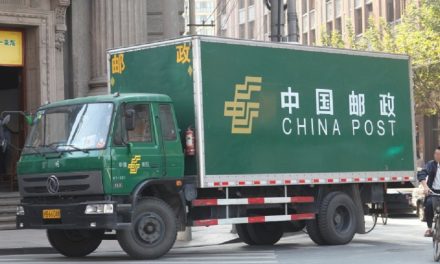
China: Competition, not monopoly, the best option
The State postal sector, pampered policy privileges Competition and monopoly are irreconcilable in the market. Competition tries to break through monopoly while monopolistic power wields its entrenched clout to curb competition. This is evident from the recent "Sunlight incident," in which China Post and a booming private postal business wrangled over the validity of non-State-owned firms in the business of newspaper distribution. Established in August 1999 in Zhangjiakou, North China's Hebei Province, the Sunlight Newspaper Corp is a company that focuses on delivery and retail sales of newspapers, magazines and books. Its good service in newspaper distribution has won it a popularity
among local citizens and in just several months it has acquired more than 10,000 customers. Its share of the newspaper distribution market was only
2 per cent then. But it is rising. And its development momentum has riled local
postal authorities. They conducted an investigation into the company, saying the company disrupted the order of the newspaper distribution market. But their investigation lacked the full support of the law. The Postal Law of the country does not stipulate that private companies are forbidden to become involved in the business of newspaper distribution. Article 8 of the Postal Law says that postal and delivery services for mail and other articles with the characteristics of mail shall be exclusively operated by postal enterprises, except as otherwise provided by the State Council. In the law, the term "mail" refers to letters and postcards.
Obviously the law entitles State postal enterprises to work with mail "exclusively," but it does not include the business of newspaper distribution. To find legal support, local postal authorities leant on the Hebei
provincial government to issue a set of local postal regulations in September of 2000, assigning the right of newspaper distribution solely to State postal firms. Then, according to the belated and questionable regulations, the
local postal administration ordered Sunlight to stop its newspaper
distribution business. This tinkering with the law is a reflection of the fierce defence of vested interests of their traditional strongholds. In the past when the private economy was inactive, all distribution work was done by State postal enterprises, affiliates of China Post, and only a few private firms stepped into the sphere of newspaper distribution. The exclusiveness of China Post in newspaper distribution has been a routine and accepted practice. But past practice by no means justifies China Post's monopoly of the
market today, as no law has allowed it. Recently China has seen a prospering private economy. It has added vigour to the national economy but exerted great pressure on the State sector. In the postal sector, the express delivery businesses, a traditional domain of State postal enterprises, are being eaten away by non-State-owned companies, which cater to the market need by
operating with higher efficiency and lower costs. granted from the past, are incurring growing grievances from the public for inadequate service. And for some businesses, the State firms charge much higher prices than private companies. For example, State firms charge two or three times more than non-State-owned firms for Express Mail Service (EMS) within the same city. Now 60 per cent of the fast delivery market has been taken by non-State-owned delivery companies. In these circumstances, State postal enterprises are facing mounting
pressure from both the public and their rivals. Unable to compete with their rivals, the postal authorities have been determined to set up hurdles for legally operated private companies. It has been repeatedly reported that local postal authorities have asked the police and licensing authorities to conduct investigations into non-State-owned firms in the name of verifying their legality of operation. Often these firms have been accused of infringing upon the exclusive business of the State postal sector. But the State Council has issued a set of regulations that allows non-State-owned firms to operate fast delivery businesses for items other than letters, an act that goes in line with the Postal Law stipulation "posting and delivery services of mail and other
articles with characteristics of mail shall be exclusively operated by postal enterprises, except as otherwise provided by the State Council." Despite China Post's raid on private companies, it is an unchangeable fact that the China Post has lost much of its battle for the delivery business. For this reason, it is no surprise that it will not sit idly by and let newspaper distribution, which is becoming more lucrative as China's media economy matures, be taken by its business rivals. But it adopted the wrong method – administrative interference in the market. It is an irreversible trend that monopolies will be broken up. By 2002, the State will wean the State postal sector off the huge
subsidies it has always received, in preparation for China's entry into the World Trade Organization. Under these conditions, China Post should care more about improving its operations, and less about how to squeeze rivals out of the
market. Without improving its operations and sharpening its competitiveness,
it will run into snags in the market once its administrative interference is forbidden.
Copyright 2001 China Daily.
Source: World Reporter (Trade Mark) – Asia Intelligence Wire.












